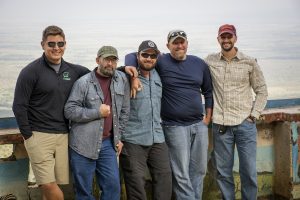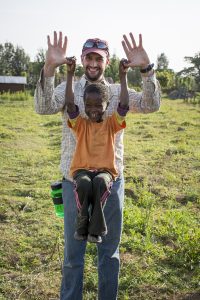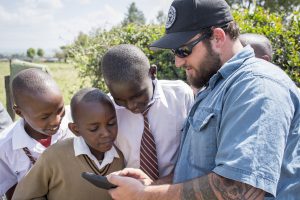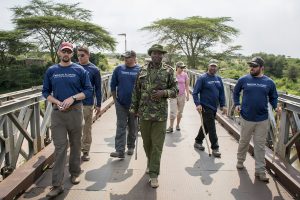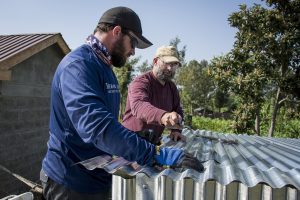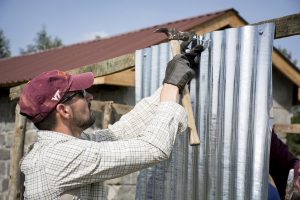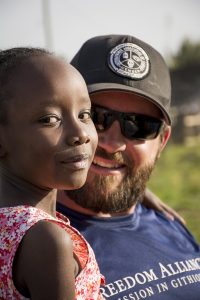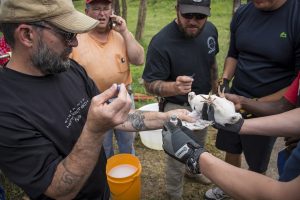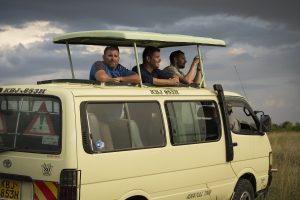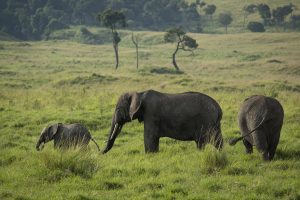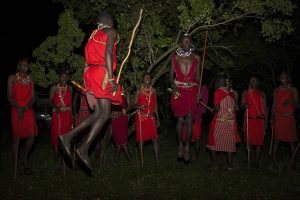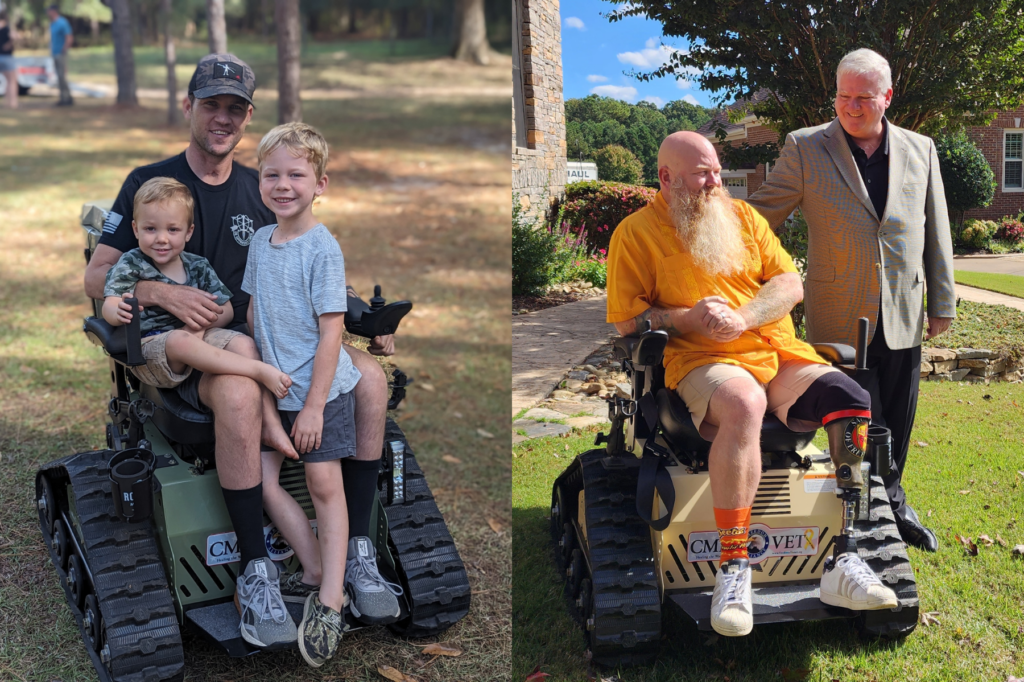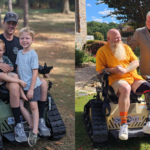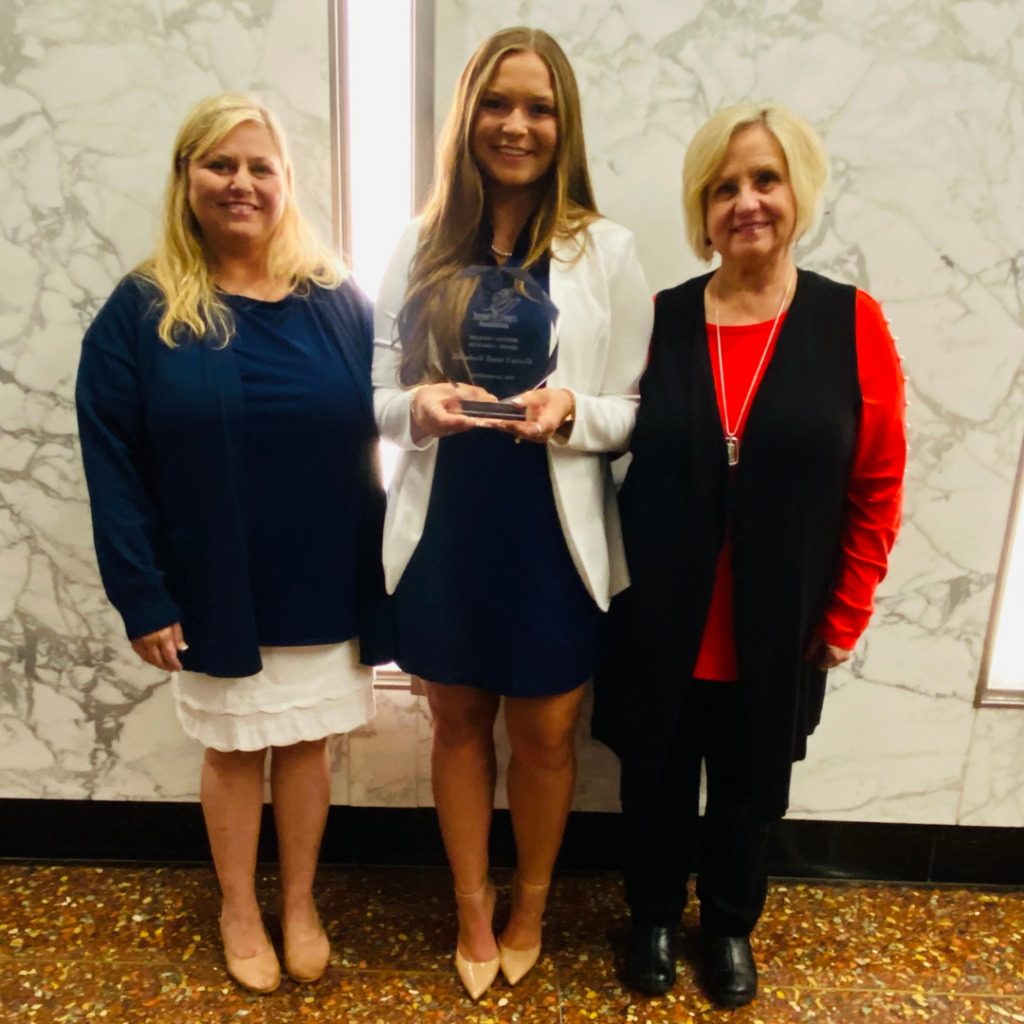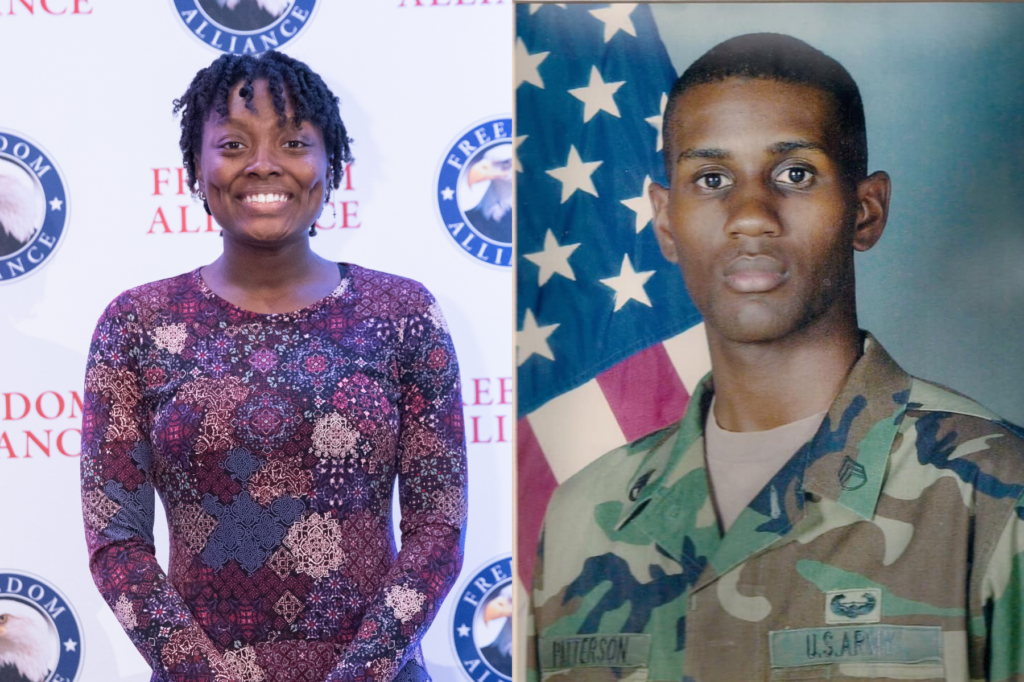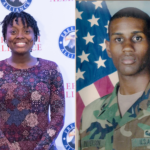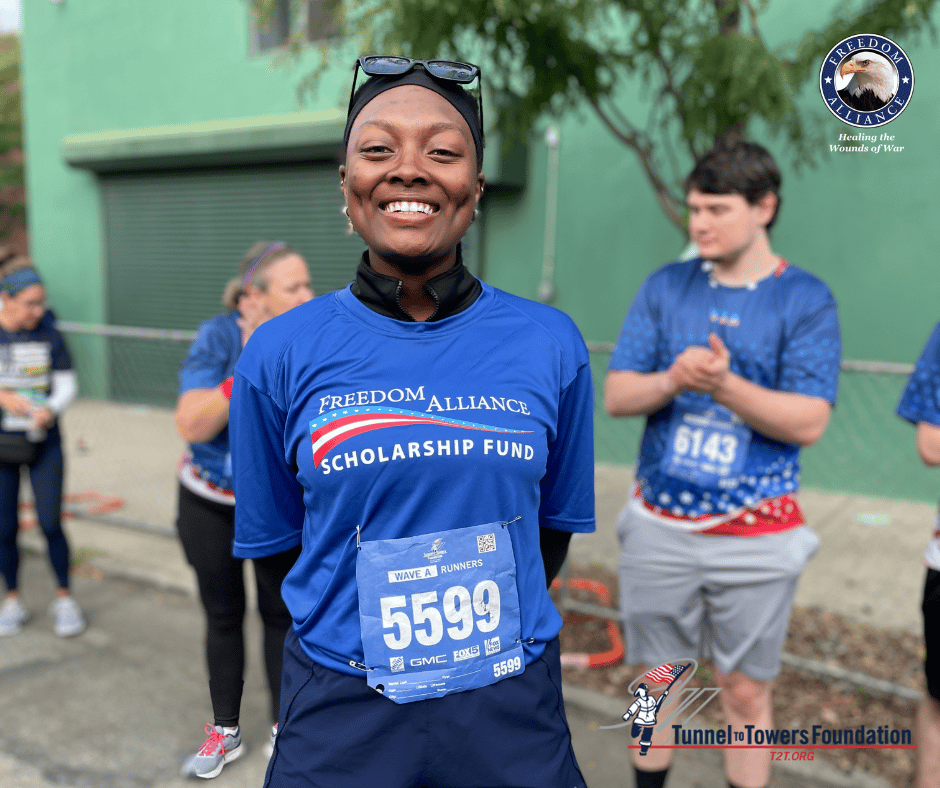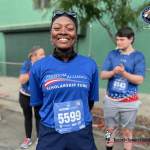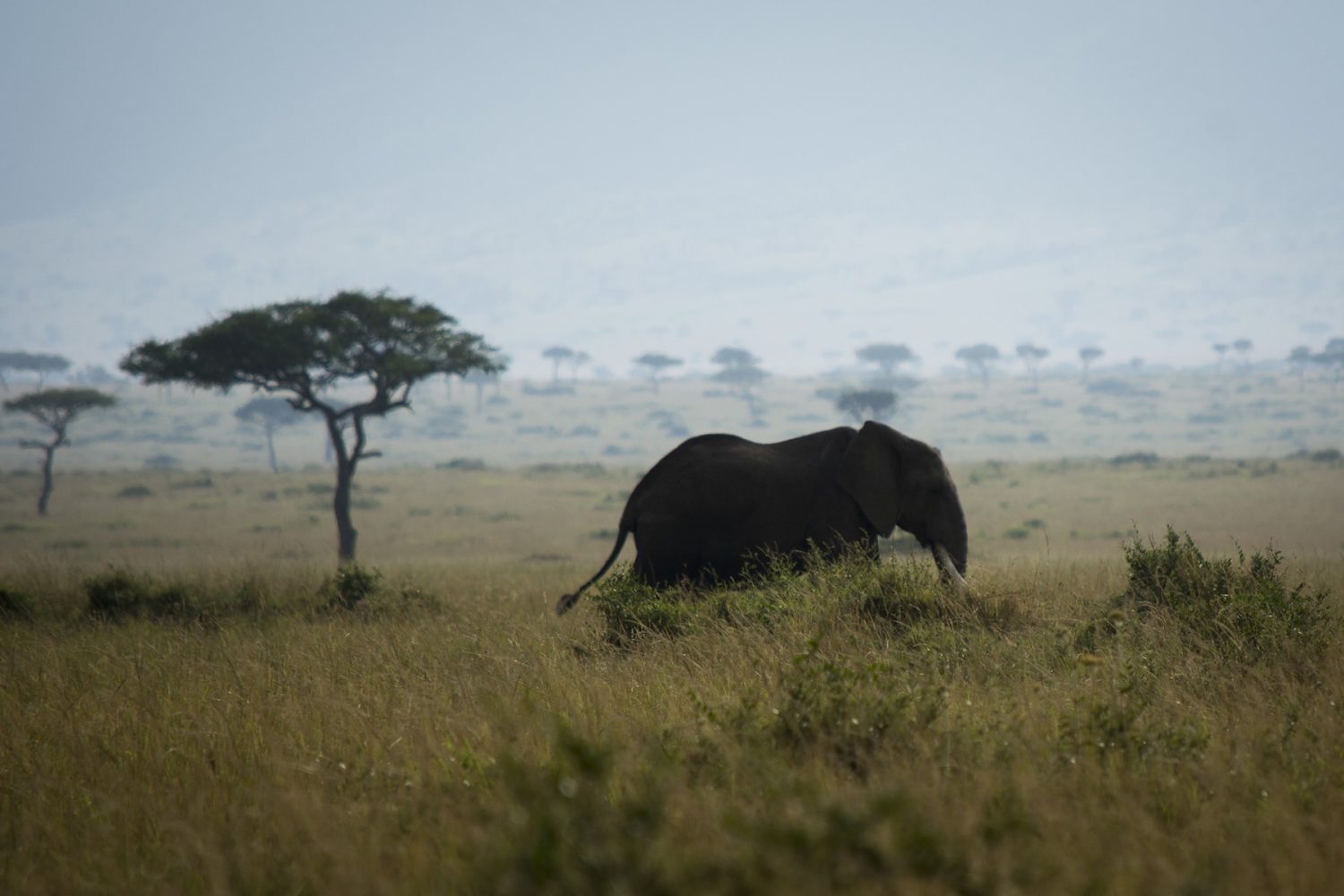
If anyone knows how to carry out a mission, it’s a Marine. Even years after leaving the Corps, a retired Marine will never fail to get the job done—no challenge too big, no order too tall.
When we received a call for help in Githiorio, Kenya, we knew just who to send. Five Marine veterans, with decades of service collectively, accepted the summons.
This mission would be different from the ones they performed for the Marine Corps. This one would involve swinging children, blowing bubbles, and catching chickens; it would include running water pipes, sharing their faith, and delivering shoes.
These five Marines willingly traded their combat boots for shoes of peace.
In fact, this operation was entirely different for Freedom Alliance. Never before had we sent combat veterans on a mission of peace, to do good in the world.
As an organization, our mission is to serve those who serve our country. We honor their military service, thank them for their sacrifices, and help where we can. We give grants, scholarships, equipment, vacations, homes, special events … and most importantly, we establish relationships with veterans and their families. When we get to know the people we serve, we know better how to support them.
This time, though, we asked the veterans to serve, and in a way they hadn’t trained for at Quantico. As it happened, by helping others, the Marines helped themselves.
We joined with Neighbors Outreach Worldwide (NOW), a charity in a rural area of Kenya that handles education, job creation and training, and spiritual growth. The Marines traveled to the other side of the world to meet the missionaries at the NOW compound in Githioro.
“The driving was more hectic and dangerous than driving in Iraq,” Paul said of the trip. “I won’t lie, I said some prayers!” Paul served with a Marine Corps engineering battalion during the 2000s, and he currently works for the Department of the Navy.
One of the first stops in Kenya was Holy Trinity Boarding School, where NOW sponsors 29 children. Our Marines ate lunch with the students and spoke at an assembly. The children enjoyed mingling with the servicemen and were especially fascinated by their tattoos!
Ricardo was a master gunnery sergeant with 23 years in the Corps. One of the founders of the Marine Corps Martial Arts Program, Ricardo is not shy about telling his story, and he readily did so for the school children.
When the team arrived at their lodging, they were quickly initiated in the evening routine. Kenyan women cooked a traditional meal of lentils and meat stew, with a side of cabbage. After dinner, everyone worked together to chase nearly 300 chickens into their massive coop for the night. These chickens have created jobs for the locals and the proceeds from sales go to continue the outreach in Githioro.
At NOW, the team met a remarkable woman named Esther, who was responsible for a big part of what they accomplished in Kenya. Since escaping an abusive marriage, Esther and her two children have come to live at the NOW compound. She has committed all her own money to build a shelter for abused women and their children. Once complete, it will offer a safe place for families, jobs for widows in the community, and provision for orphans.
Each day, the Marines worked at the shelter construction site. Lacking tools and supplies caused many delays. Fortunately, several of the Marines had backgrounds in construction. Once the necessities came together, they ran a pipe along a trench from a water source and built a shed at the opening to cover the water spigot.
There were many men from the neighborhood hanging about, hoping to get a job building the shelter. The Marines easily related to the local men, and they played with children at a nearby preschool, as well.
When Anthony, an ex-military policeman, joined them for recess, the children took to him right away. As he formed them into lines for exercises, they could have passed for a platoon of Marines.
One of the team’s favorite memories was playing soccer with the student body of Holy Trinity. “It humbled me,” Paul said, “playing so hard with boys who don’t have athletic shoes, sports clothing … and yet they were tough.”
One little girl approached a war-hardened Marine who goes by the name of “T.” He visibly melted at her touch and soft smile. T spent the trip labeling each experience “the ole Kenyan _____.” There was the ole Kenyan gravedigger, and the ole Mombasa two-step. When this little girl from the neighborhood asked to be picked up and was constantly reaching for T’s hand, he called it “the ole Kenyan tearjerker.”
The team spent evenings at the compound talking, contributing stories and memories from the day. Tom, an 18-year veteran of Iraq, was drawn to Esther and her tale of survival. He shared with her about coming home from war and the depression he suffered. He told her honestly that if he hadn’t gotten help, he fears he may have become abusive to his family. This admission was one of many tender moments the Marines shared with their new Kenyan friends.
That same evening, Ricardo shared from the Bible the verses telling husbands to love their wives, “as Christ loved the church and gave himself up for her.” It was a keen moment for the Kenyan women, victims of abuse and abandonment, as well as the young men present.
After the construction projects were finished, the Marines worked with some of the school kids to catch, vaccinate, and flea-dip the chickens, which were so valuable to the local economy. It seemed that NOW was the one hope in Githioro for finding a livelihood. From the single mothers who cooked meals to the men seeking a job at the construction site, the Marines were impressed by all those grasping at any opportunity to provide for their families.
Anthony said, “We come from a country where some people won’t even work for less than a certain salary, and we saw dozens of men praying for a manual-labor job that paid mere dollars for a day’s work.”
The last two days in Africa were preserved for safari. Having said goodbye to the people of Githioro, vans took the Marines eight hours into the mountainous region, where Kenya borders Tanzania. Lodging two nights at the Fairmont Mara Safari Club on the Mara River, the days were spent in the neighboring conservancy.
From the open roofs in the vans, the servicemen were thrilled to see lions, male and female, as well as cubs, the first day. Gazelle, giraffes, zebras, wildebeests, elephants, baboons, and even a leopard—every African animal you can think of—revealed the majesty of the Maasai Mara National Reserve. The men ate packed lunches with mischievous monkeys, which stole Paul’s juice box and the apple out of T’s lap. An armed ranger, on the lookout for danger, escorted them across the river path, where they saw noisy hippos and menacing crocodiles along the bank.
On the last night, a table was set in a secluded woods and lit by lanterns. The Marines arrived in the park to find a blazing bonfire and a chef grilling meat. They had settled in with their drinks when, without warning, a dozen Maasai warriors in their traditional red robes, carrying spears and staffs, rushed in from the shadows, hooting and chanting. It was quite a shock, especially for veterans suffering from combat trauma! Fortunately, after the initial reaction, the two classes of warriors—Marine and Maasai—allied, at peace with one another for a delightful evening of shared culture.
From beginning to end, the Kenya experience bonded and impacted the men in a permanent way. As Paul said, “This experience will never be forgotten for the rest of my life, and I forged several brand-new friendships, and there’s not a better feeling.”
The people of Githioro won’t forget them either.
Mission complete, the team made the long journey home, we think, as different men. Still Marines, still fierce, still wild. But now a little bit gentler, a little more open … a little more like Kenya.
